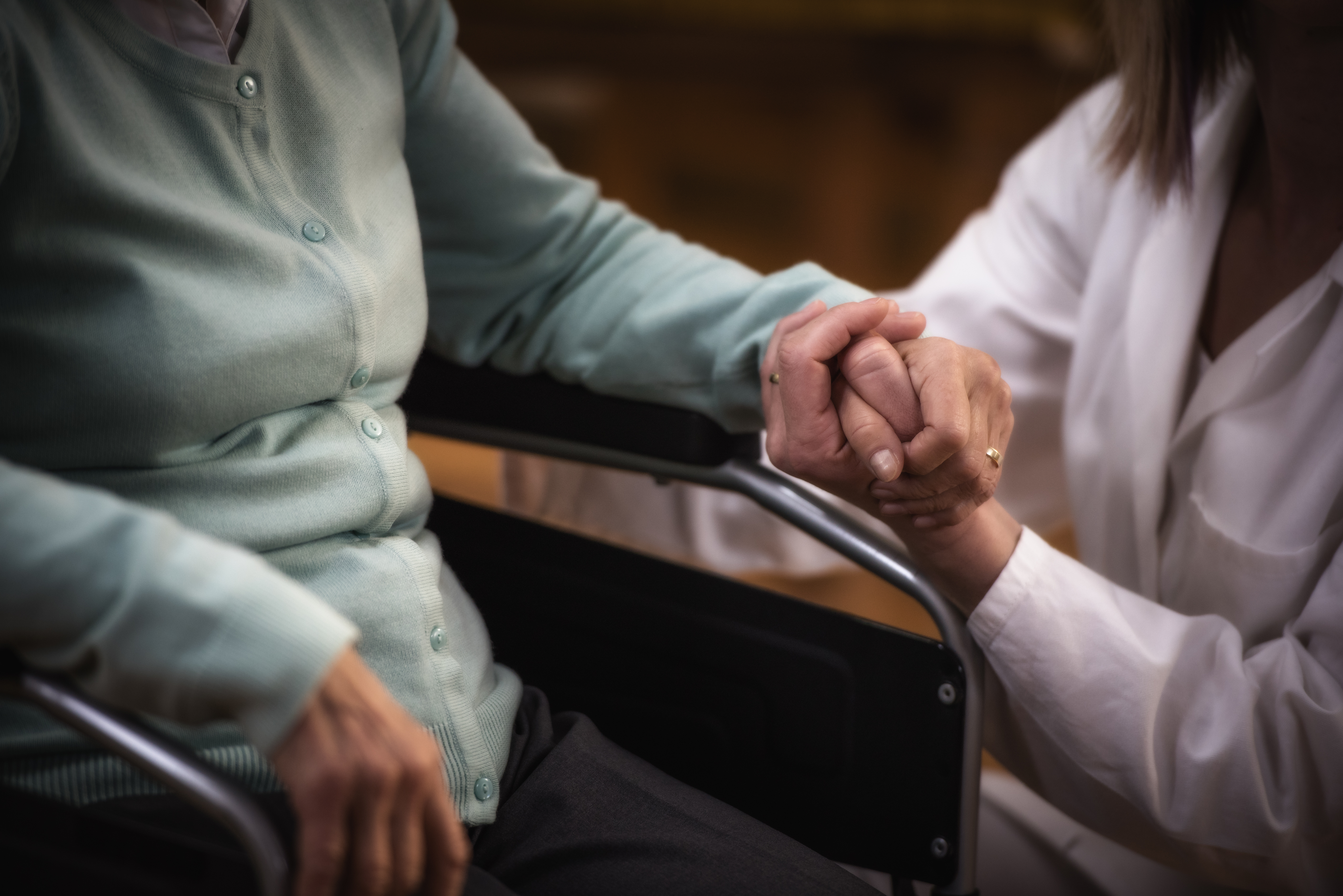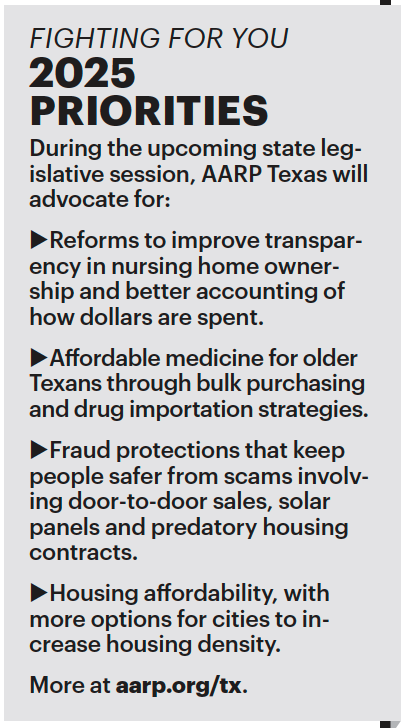AARP Hearing Center

After Hurricane Beryl hit in July, the Houston-area assisted living facility where Susan Sandlin’s parents, both 87, live lost power for 11 days. The building had small generators, but they were only able to power some things like phone chargers and fans, recalls Sandlin, 59, who lives a short drive away from the 70-bed facility.
“I was very concerned that my parents could suffer from heat exhaustion or even heat stroke,” she says.
The temperature in their apartment reached the high 80s, but without a working elevator, it was difficult to evacuate Sandlin’s mother, who uses a wheelchair, from her second-floor apartment.
AARP Texas is hoping to alleviate such concerns by advocating for legislation that would require assisted living facilities to have adequate backup power that can help maintain safe temperatures during an outage. The 2025 legislative session begins Jan. 14.
State regulations do require such facilities to provide emergency power and to maintain temperatures between 68 and 82 degrees, but the requirements don’t carry the force of law.
“AARP Texas sees the serious need for backup power requirements to be ingrained in state law, not just administrative code,” which can change with administrations, says Andrea Earl, AARP Texas’ associate state director of advocacy and outreach.
Extreme temperatures can be especially dangerous for older adults. Hurricane Beryl caused 28 deaths among Texans 60 and over, about half of them because of overheating, according to a report by Houston Public Media.
Hot weather is a big concern because older adults often have difficulty noticing when temperatures are dangerously high, says Patty Ducayet, Texas’ long-term care ombudsman. Studies show older adults may also have chronic health conditions or take medications that make it harder for the body to cool itself.
Severe cold also poses a significant threat. In the February 2021 winter storm, 107 Texans who were 60 or over died from hypothermia, Texas Health and Human Services data shows.
Advocating for protections
AARP Texas will also advocate for legislation to expand nursing home requirements. Current state rules require that these facilities be able to power systems during an emergency, including lighting, medication refrigerators and life-supporting equipment. But AARP’s Earl says the regulations are unclear about whether backup power must maintain the temperature range normally required for nursing homes—between 71 and 81 degrees.
“We just want to assure that there are no gaps or loopholes” for nursing homes, AARP’s Earl says.
After winter storm Uri in 2021, the state conducted a survey of Texas’ approximately 2,025 assisted living facilities and 1,217 nursing facilities, finding that the ability to provide cooling and heating during a power outage varied widely. Of those that responded, 99 percent of nursing homes reported having a generator, but only about half were set up to power air conditioning, heat and hot water.
Among assisted living facilities, 47 percent reported having a generator. But of those, only 56 percent could provide cooling and 59 percent could provide heating.

In both 2021 and 2023, bipartisan bills that would have required backup power at all assisted living facilities stalled. The Texas Assisted Living Association argued that such a requirement would be logistically challenging to implement.
These facilities should have the flexibility to use multiple strategies during a power outage, including generators, moving residents to other buildings with generators within the community and voluntary evacuation, says Carmen Tilton, the association’s vice president of public policy.
However, Earl says some of those strategies put the responsibility on residents and other companies rather than the facilities. They should have backup power ready and available before there is an emergency, she adds.
State Sen. Carol Alvarado (D-Houston) is drafting a bill that would expand protections, including backup power, for Texans living in senior communities and long-term care facilities. She may look to Florida as a model. The state passed legislation in 2018—after at least 12 nursing home residents died in south Florida after Hurricane Irma—requiring nursing homes and assisted living facilities to have emergency generators that can provide cooling.
Alvarado says she’s optimistic that a bill could pass in 2025.
“We’ve had a lot of [severe weather] that is still fresh on people’s minds,” she says. “People are still recovering.”
Carina Storrs, a New York–based journalist, covers aging, health policy, infectious disease and other issues.
Also of Interest
- Assisted Living Facilities: Weighing the Options
- 11 Housing Options for Older Adults Who Need a Little - or More - Help
- Finding the Right Long-Term Care for Your Loved One































































